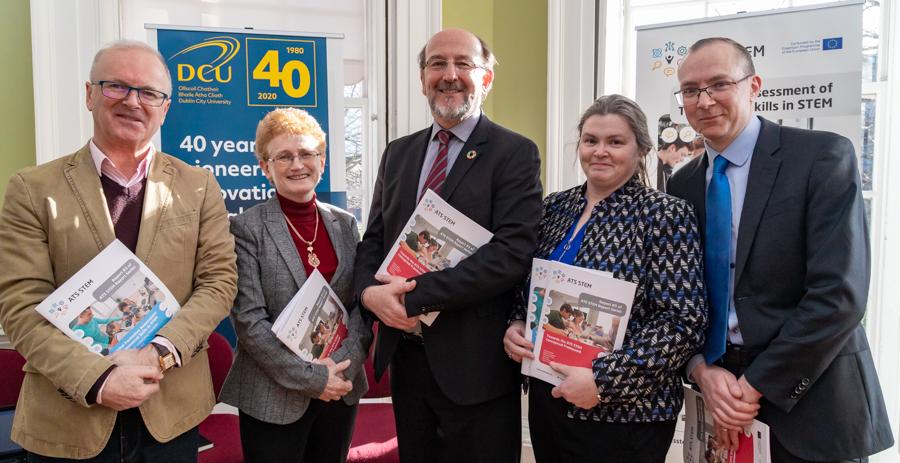

DCU launches reports that provide conceptual framework for STEM education
DCU’s Institute of Education today launched a series of reports concerning STEM education across Europe.
STEM (Science, Technology, Engineering and Maths) education has become a high priority for governments and educational policy-makers as it is believed to be crucial to the future global economic prosperity. The key underlying assumption is that countries with dynamic economies tend to be those with effective education systems that prioritise STEM education.
There are deep systemic issues facing many educational systems in order to help students to understand how to solve real-world problems using knowledge gained through STEM disciplines.
The research was conducted in the National Institute for Digital Learning (NIDL), the Centre of Policy and Assessment (CARPE) and the Centre for Advancement of STEM Teaching and Learning (CASTeL) in DCU as part of an Irish partnership involving H2 Learning Limited, Kildare Education Centre and under the auspices of the Department of Education and Skills to coordinate a major European funded research project. The project comprises a wider partnership working together in 13 institutions across 8 European countries.
Of the five reports launched, the first two deal with research pertaining to STEM Education in schools and with national policies for STEM in various European countries. The third report discusses the key ideas and principles underlying STEM digital formative assessment theory.
The fourth examines the potential of various technology-enhanced tools and architectures that are used to support assessment for learning. Drawing on all four of these, the fifth report presents a pathway towards and integrated conceptual framework for the assessment of transversal skills in STEM that will be validated and further developed by the 12 project partner institution across eight european countries.
The research underpinning this first iteration of the ATS STEM Conceptual Framework presented provides a conceptual tool to help European educators reach a common understanding of what integrated STEM education is and how it can be assessed using a range of digital tools in schools.
Educators can benefit from such a conceptual framework encapsulating the key ideas from the literature. This framework has considerable potential to inform and deepen their understanding of what STEM Education is as well as shaping their subsequent classroom practice.
Prof. Brian MacCraith, President of DCU said
“Together, these reports will make a significant contribution to improving STEM education in schools across Europe. By partnering with policy makers and teachers, the research team is developing practical solutions to ensure students have the key STEM skills and literacies they will need for the workplace of tomorrow.”
More information about the project can be found at atsstem.eu
